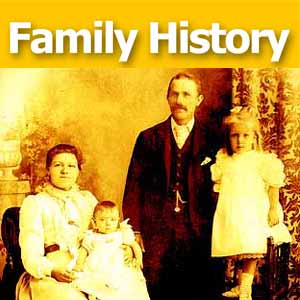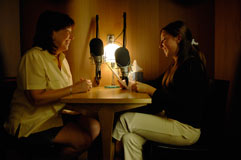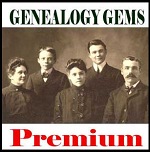by Lisa Cooke | May 4, 2015 | 01 What's New, images, Newspaper, Preservation, United States
 According to a news story by IowaWatch.org, current Iowa newspapers are piling up at the archives of the State Historical Society of Iowa in Des Moines, with no current plan to microfilm or otherwise preserve them.
According to a news story by IowaWatch.org, current Iowa newspapers are piling up at the archives of the State Historical Society of Iowa in Des Moines, with no current plan to microfilm or otherwise preserve them.
“Traditionally, the papers would have been sent off [for microfilming], but a 2009 budget cut ended that 50-year practice,” says the report. “A bill proposed last year would have provided funds for the backlog, but the Iowa Department of Cultural Affairs, which oversees the historical society, put on the breaks. It rejected the proposed funding citing pending completion of a master planning process and assessment study to evaluate what it has in the archives and how to preserve those materials in the future.”
Over 1500 bundles of newspapers await microfilm preservation, at an estimated cost of around a quarter million dollars. Officials state that they are reviewing a master plan for preserving all important materials in the state archive, not just newspapers. Click here to read the full story.
What can you do to ensure that today’s newspaper history lives on in your family
- Digitize current obituaries and articles that mention your family.
- Image meaningful headlines and write a journal entry about why they are important to you.
- Keep track of these images, full source citations and your thoughts in organizational software like Evernote and attach them to your family tree in your own software and in your online trees.
 Meanwhile, make the most of what historical newspapers had to say about your family. More of these papers are accessible online, either directly as digitized content or through microfilm rentals or research services you can learn about online. Learn more in Lisa’s book, How to Find Your Family History in Newspapers.
Meanwhile, make the most of what historical newspapers had to say about your family. More of these papers are accessible online, either directly as digitized content or through microfilm rentals or research services you can learn about online. Learn more in Lisa’s book, How to Find Your Family History in Newspapers.
by Lisa Cooke | Aug 6, 2015 | 01 What's New, images, Who Do You Think You Are?

Photo (credit: TLC)
This Sunday, August 9 at 9/8c TLC will air actress Alfre Woodard’s episode of Who Do You Think You Are?
In the episode, Alfre Woodard sets out to learn more about her paternal grandfather’s family, which she knows little about since her grandfather died before she knew him. She uncovers the triumphant story of her great-grandfather Alec, who endured the horrors of slavery and ascended from servitude to successful landowner, an extraordinary feat of his time.
Catch a sneak peek of the episode here!
Next week, TLC will air a special episode of the series entitled ‘Into The Archives.’ The special digs into its archives, featuring highlights throughout the past seasons, including triumphs and tragedies, delightful discoveries and sobering moments. This special episode also unveils outtakes and never-before-seen footage from the series’ vault.
 Ready to get started learning about your own family history? Listen to our free Family History: Genealogy Made Easy podcast here. Also available through iTunes.
Ready to get started learning about your own family history? Listen to our free Family History: Genealogy Made Easy podcast here. Also available through iTunes.
You can also subscribe to our free weekly newsletter for more tips and strategies for learning how to climb your family tree.
by Sunny | Aug 31, 2018 | 01 What's New, Records & databases
Find New England genealogy records for Vermont pioneers, Boston Catholics and Berkshire, MA residents among new and updated collections online. Also: vital records updates for Idaho, Nebraska, New York state and Tennessee.Featured: New England genealogy recordsVermont...
by Lisa Cooke | May 3, 2015 | 01 What's New, Apps, images, Interviewing, Memory Lane, Oral History, United States
 Recently a friend sent me a link to a TED talk by StoryCorps founder Dave Isay. As a radio broadcast journalist, Dave has spent his life capturing other people’s stories. The profound impact this had on him led him to found StoryCorps, which collects and archives interviews with everyday people.
Recently a friend sent me a link to a TED talk by StoryCorps founder Dave Isay. As a radio broadcast journalist, Dave has spent his life capturing other people’s stories. The profound impact this had on him led him to found StoryCorps, which collects and archives interviews with everyday people.
“Every life matters equally and infinitely,” Dave learned, something we discover as family historians, too. He talks about how inviting someone to talk about his or her life “may just turn out to be one of the most important moments in that person’s life, and in yours.” This is something I try to explain to people about family history interviews: asking respectful questions and listening just as respectfully is a gift we can give our relatives when we interview them.
StoryCorps started with a little recording booth in Grand Central Terminal, one of the busiest places in the world to hold these intimate conversations. Two people share a conversation, one interviewing and the other being interviewed, and a facilitator helps them record the conversation and leave with a copy of it. Another copy goes to the Library of Congress.
In our own ways, we do this when we record loved ones’ life stories. We honor their feelings, experiences and opinions by asking about them and preserving them. Sometimes we share personal moments of understanding, forgiveness or revelation. In my experience, it’s similar to what unfolds in the StoryCorps booths: “Amazing conversations happen.”
In Dave’s TED talk, he shares snippets of some of those amazing conversations, like A 12-year old boy with Asperger’s syndrome interviewing his mother, and a husband sharing his love for his wife: “Being married is like having a color television set. You never want to go back to black and white.”
 StoryCorps now has an app that helps people capture conversations like these. A digital facilitator walks you through the interview process, the app records the conversation, and then you can save and share the resulting audio file. Why not record an interview in honor of Mother’s Day or Father’s Day this spring with the StoryCorp app? Or have a meaningful conversation with an aunt or uncle, sibling, cousin or your child or grandchild.
StoryCorps now has an app that helps people capture conversations like these. A digital facilitator walks you through the interview process, the app records the conversation, and then you can save and share the resulting audio file. Why not record an interview in honor of Mother’s Day or Father’s Day this spring with the StoryCorp app? Or have a meaningful conversation with an aunt or uncle, sibling, cousin or your child or grandchild.
 Genealogy Gems Premium members can learn more about preserving the stories of your own life in the Genealogy Gems Premium Podcast Episode 116, in which I interview Laura Hedgecock, author of Memories of Me.
Genealogy Gems Premium members can learn more about preserving the stories of your own life in the Genealogy Gems Premium Podcast Episode 116, in which I interview Laura Hedgecock, author of Memories of Me.
by Lisa Cooke | Aug 7, 2015 | 01 What's New, Conferences, Google, images, Technology

Photo courtesy of The Ancestry Insider
New technologies don’t stay new. They keep evolving. Here’s a tip for harnessing new and emerging technologies to advance family history research and stay connected with living relatives.
Last week, I was at the BYU Conference on Family History & Genealogy in Provo, Utah. What a friendly, welcoming group! (Be sure to check out the BYU Family History Library here.) All week, I taught sessions and gave a keynote address on various technologies that help our research. The week’s discussions reminded me how quickly technology moves–and how enthusiastically genealogists continue to embrace new opportunities given them by technology.
It’s part of my job to learn about these new technologies and pass the best ones–the “gems” along to you. But here’s a tip I shared during my keynote address that will help you focus on the technologies you care most about: Think about which tasks you want to accomplish with technology, rather than just learning genealogy-specific technology. Then keep up with developments in the technologies that accomplish those tasks.
For example, by now, many of us have used (or at least heard of) Google Translate. We can use it with foreign-language documents and to correspond with overseas relatives and archives. But Google Translate’s functionality keeps improving. “By the audible gasps of the audience” (during my keynote address) reported the FamilySearch blog, “most were not aware that the Google Translate app enables you to literally hold up your phone to the computer screen or typeset document, and it will translate foreign text on the fly for you—a must have free tool when dabbling in nonnative language content.”
Genealogists are really thinking about these issues. The Ancestry Insider blogged about my keynote talk, too, and my observation that genealogists haven’t been embracing digital video at the same speed at which they embrace other forms of digital media. In the comments section of that post Cathy added, “Now what we need to do is get FamilySearch to figure out a way to let us upload our URL YOUTube videos, not only for our deceased, but for our living….Our children and grandchildren don’t write letters, they email, text, instagram. They don’t write journals, they blog. They make videos of current history….We all need to look to the future and [learn] how to save the new technologies.” Cathy gets it!
A special thanks to conference organizers Stephen Young and John Best, who welcomed me and Genealogy Gems Contributing Editor Sunny Morton all week long. They did a fantastic job of organizing a large event while retaining a warm, personal environment.
Continue reading about applying technology to your family history here.
 According to a news story by IowaWatch.org, current Iowa newspapers are piling up at the archives of the State Historical Society of Iowa in Des Moines, with no current plan to microfilm or otherwise preserve them.
According to a news story by IowaWatch.org, current Iowa newspapers are piling up at the archives of the State Historical Society of Iowa in Des Moines, with no current plan to microfilm or otherwise preserve them. Meanwhile, make the most of what historical newspapers had to say about your family. More of these papers are accessible online, either directly as digitized content or through microfilm rentals or research services you can learn about online. Learn more in Lisa’s book, How to Find Your Family History in Newspapers.
Meanwhile, make the most of what historical newspapers had to say about your family. More of these papers are accessible online, either directly as digitized content or through microfilm rentals or research services you can learn about online. Learn more in Lisa’s book, How to Find Your Family History in Newspapers.





